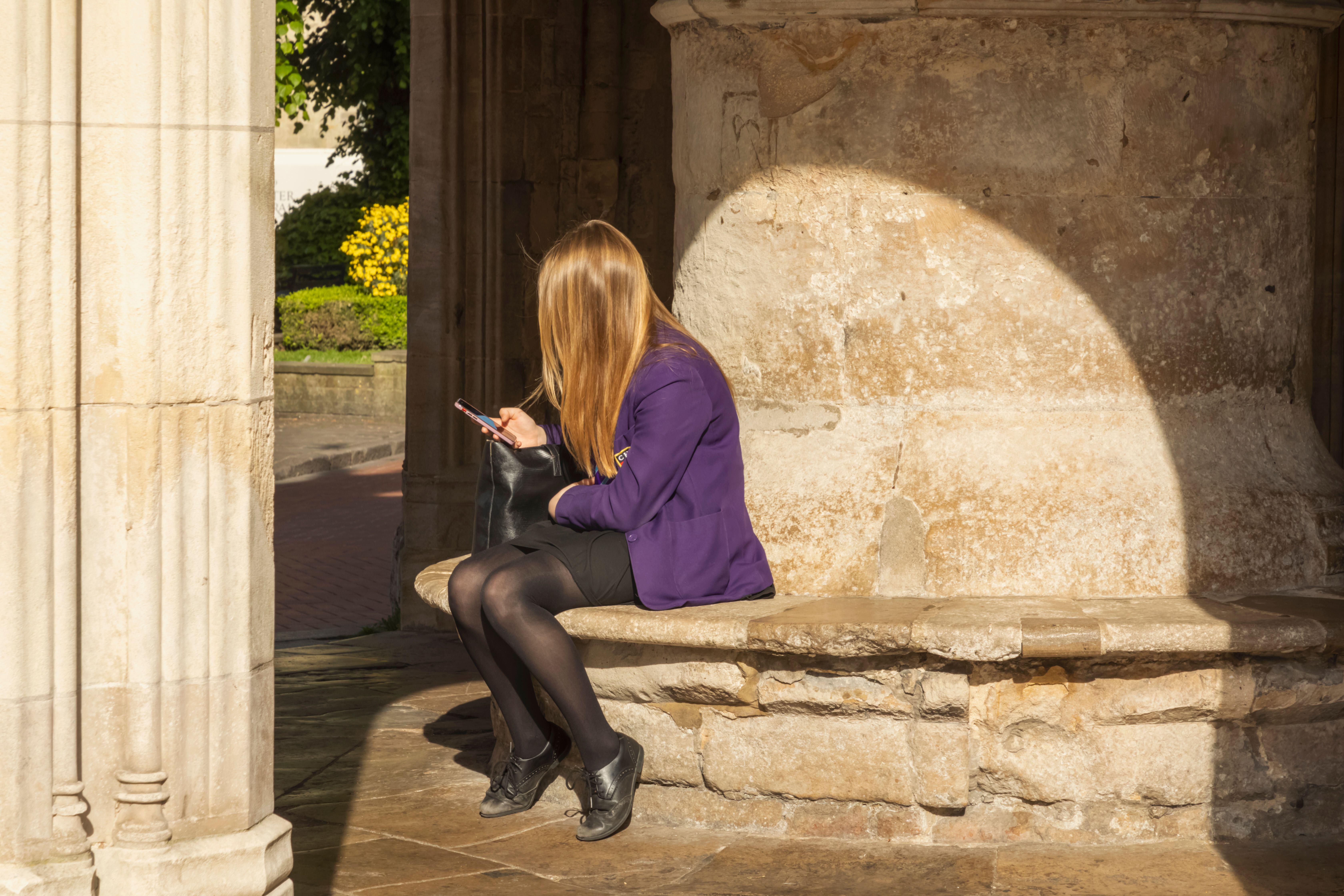Sir Keir Starmer is under pressure to consider the “overwhelming evidence” from New Zealand to consider banning smartphones from schools.
In an exclusive interview with The Independent, New Zealand’s education minister Erica Stanford said she has heard “overwhelmingly positive feedback” about the world-leading phone ban in her country, with more engagement and less cyberbullying in schools.
The New Zealand National Party government now hopes to take it further and introduce a ban on social media for under-16s.
It comes as Sir Keir’s government is under increasing pressure to introduce similar measures in English schools, with the Tories and campaign groups pressing for a ban.

New Zealand’s government introduced a ban on mobile phones in schools last year.
Ms Stanford told The Independent: “I’ve been told students are much more focused on their learning in class, they are engaging with their peers, reading more books, spending more time playing outside, and there are fewer reports of cyberbullying.
“I am committed to ensuring children are not only safe but remain focused in the classroom. Taking away the distraction of cellphones ensures better engagement in class and improves student achievement and wellbeing.”
In the UK, a recent push by the Tories to add an amendment to the Children’s Wellbeing and Schools Bill, which would require schools to prohibit phone use during the school day, was shut down by the government.
Tory leader Kemi Badenoch has urged ministers to reconsider after Sir Keir Starmer labelled the amendment as “completely unnecessary”, claiming “almost every school” already bans phones.
Ms Badenoch claimed: “The prime minister is wrong: not all schools do this. Only one in 10 schools is smartphone-free.”
Despite the government’s stance, education secretary Bridget Phillipson has commissioned a review into “whether schools in England are banning children’s phones and whether bans are effective”.
In New Zealand, the National Party’s election promise was greeted with scepticism, criticism, and an assumption that students would become sneakier. Now, it’s being praised by students and educators.
Anna Wilson, acting principal of Wellington East Girls’ College in the nation’s capital, said the state-funded school has seen only positive results from the ban.
She said: “We see a lot more social interaction at break times, such as playing cards, volleyball on the courts, joining in on lunchtime activities and clubs that are student-led.”
The nationwide ban came into effect in April last year, but Ms Wilson’s school introduced the policy slightly ahead of the nationwide rollout, embedding it firmly into school life from the start of the year, “and the momentum continued across the year”.
Although they took charge with the ban, she said, “The government policy across all schools was helpful as collectively each school was doing it at their campuses at the same time.”

Fred Oppenhuis, head prefect of Wellington College, an all-boys secondary school, told The Independent the ban had a positive impact on students.
He said: “I think that the phone ban has significantly increased engagement and efficiency in class because students know that if they check their phone or bring it out without teacher permission, there are well-known consequences.”
Oppenhuis said the initial reaction came with concerns as the thought of not having a phone at school was “daunting”. But, he said it didn’t take long for students to adjust, and most students said it wasn’t as bad as they had anticipated.
One of the loudest advocates for phone-free schools has been Jonathan Haidt, a prominent US social psychologist and author of the bestselling book The Anxious Generation: How the Great Rewiring of Childhood Is Causing an Epidemic of Mental Illness.
She said that two years after schools go completely phone-free, they always seem to report big drops in disciplinary problems and increases in student engagement in class.
“My favourite outcome: teachers and administrators say, ‘We hear laughter in the hallway again.’”
The New Zealand ban applies to all state schools and expects cellphones to be off and away during the day. However, schools are allowed to decide how to enforce it.
Mobile phones can only be used for educational purposes, but there is an exemption for students who need their phones for learning challenges or health reasons. Parents and guardians must contact their child by going to the school office.
However, some doubts have been raised by the Labour Party in New Zealand.
Willow-Jean Prime, the New Zealand Labour opposition’s spokeswoman for education, told The Independent: “It is important young people are able to focus at school, and phones can be a distraction; but on the flipside, many students need cellphones, for example, for accessibility reasons.
“In New Zealand, it is individual school boards of trustees that set the rules for the operation of schools. Schools have always been able to ban cellphones at school if they believe this is appropriate, and many already did.”




